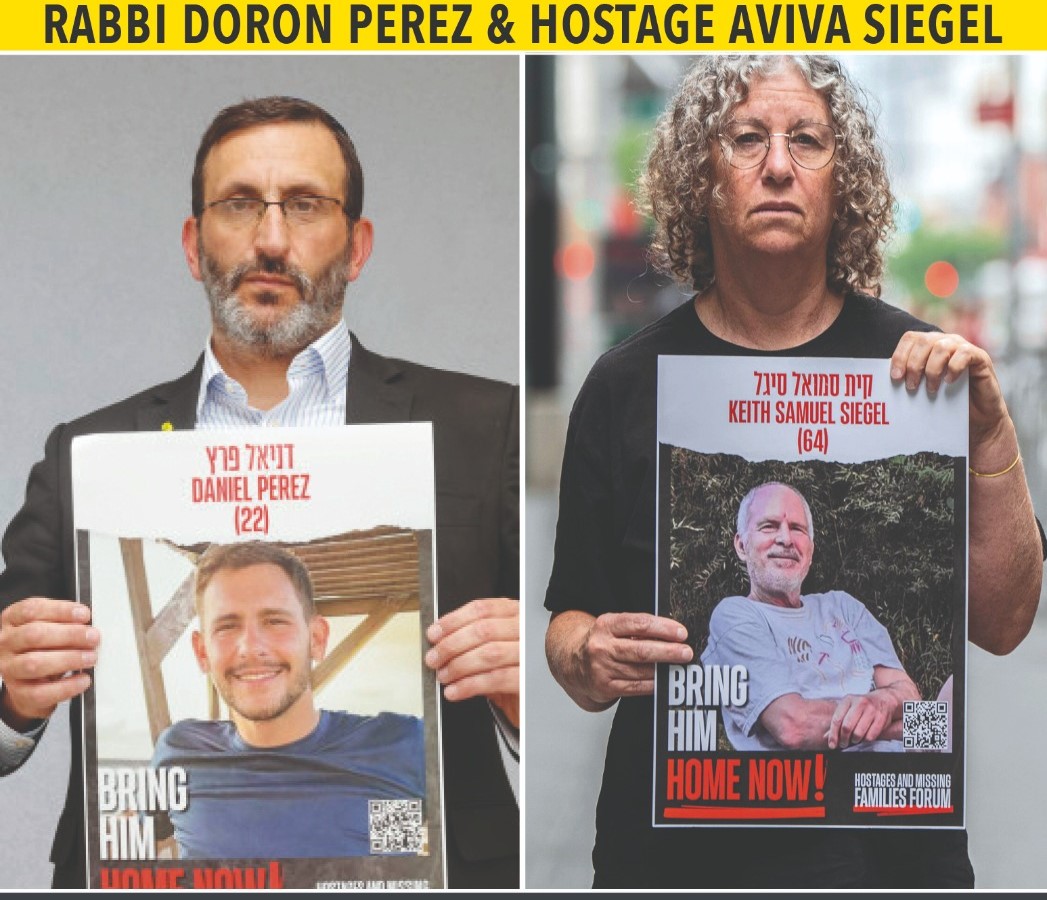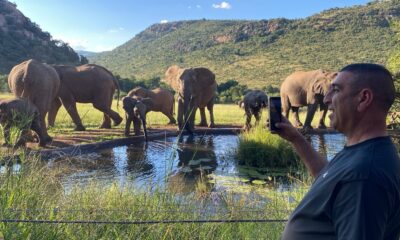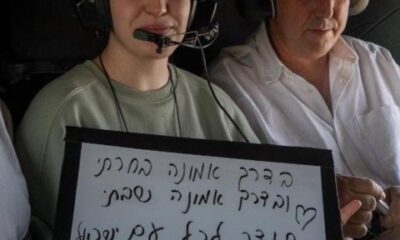
Banner

Test of faith: hostage families call for global outcry
South African-born Aviva Siegel is fighting with every fibre of her being to get her beloved husband, Keith, aged 65, released with the other 100 hostages believed to be held in the dank, festering terror tunnels of Gaza.
Her raw pain and anguish were palpable as she spoke about it and how she was starved, held in airless tunnels, and taunted by terrorists after being taken hostage by Hamas on 7 October for 51 days.
“We need to scream and shout until all the hostages come home! We must get them out before another hostage dies!” she said on a webinar on 16 September that was co-hosted by the SA Jewish Report, the Jewish National Fund of South Africa (JNF SA), and The Base Shul in Glenhazel.
“We weren’t allowed to feel. I had to hide my tears,” Aviva said of the horror of the experience she relives every day, and never leaves her for a second. “We were starved, and they ate right in front of us.” She suffered dehydration, infections, lost 10kg, and could hardly walk unassisted.
“I felt so many times I was going to die. I wanted to die. It was too much for me to handle,” Aviva said. Just before her release, she refused to leave without Keith. He convinced her to go with these heartbreaking words, “You be strong for me, and I’ll be strong for you.”
Aviva made aliya from Randfontein, eventually settling on Kibbutz Kfar Aza, 2km from Gaza. She and Keith were kidnapped there by Hamas on 7 October. She graphically described how kibbutznikim, young and old, were massacred, raped, and burned alive on that day. Parents were killed in front of their children, children hid in cupboards for hours, houses were set alight.
The couple was taken at knife and gunpoint into Gaza in Keith’s car. Keith was shot in the hand and his ribs were broken. He was in excruciating pain for days. His captors didn’t care, and wouldn’t let him lie down.
The Siegels were first hidden in a dark, cramped underground tunnel under a Gaza home with five others, with little air and filthy mattresses. They were moved 13 times. They weren’t allowed to talk for days on end. Young women were beaten with guns and sticks and violated.
“Evil cannot win, and it is winning,” she said. “The world needs to scream and shout with me to let them come home.”
Also on the webinar was Rabbi Doron Perez, also born in South Africa, who served as head of Mizrachi SA and Yeshiva College, before eventually settling with his family in Israel in 2014.
In the chaos of 7 October, his eldest son, Yonatan, an officer in the Israel Defense Forces (IDF), was shot through the leg and taken home for treatment. His younger son, Daniel, was stationed around the base of Nahal Oz near Gaza. They lost contact with him, and he was subsequently confirmed as officially missing in action.
A few weeks later, Yonatan got married, as was planned before the attack. The family also faced the prospect of a funeral for Daniel, and asked not to be told if he was confirmed dead until after the wedding. Perez resolved to put Daniel out of his mind during the wedding, but when the chuppah commenced, everyone started crying. “It was the saddest, happiest, most uplifting wedding. I then understood it is possible to carry angst and pain at the same time as gratitude and happiness,” he said.
Eventually, after 163 days, on 17 March 2024, the family received the devastating news that Daniel had been killed in action. The IDF had collected some of his blood, and these remains were buried on Har Herzl in Jerusalem. After shiva, Perez was allowed to listen to a recording of the last two hours and 16 minutes of Daniel’s life, retrieved from his tank. Daniel fearlessly confronted a second wave of terrorists carrying rocket-propelled grenades, killing many of them. “It was tragic to listen to his decisions, his bravery, his clarity of thought,” said Perez. “He shot all 3 000 rounds from his machine gun.”
Rabbi Perez said he had not (yet) experienced a crisis of faith after Daniel’s death. “I feel grateful and blessed every day, and don’t feel any anger,” he said. “But I won’t judge people who do. I’m still suffering for my son, but I know people who lost two sons, or many family members. I feel like there’s a blessing within this curse. Pain doesn’t have to translate to anger, criticism, and blame. I feel ‘lucky’, and take nothing for granted. Daniel died at the best time of his life, with all his relationships intact.”
Dalia Cusnir, whose two brothers-in-law, Eitan and Amos Horn, were taken hostage from Kibbutz Nir Oz on 7 October, also spoke on the webinar. The Horn brothers were among at least 100 people on the kibbutz who were murdered or captured. It took weeks for the family, who hail from Argentina, to learn that both men were alive in Gaza, including from released hostages and DNA retrieved from tunnels.
Dalia has undertaken advocacy campaigns on behalf of the hostages. She received a surprisingly warm welcome by the United States Congress, even from avowed Israel opponents. However, she felt that interactions with United Nations Secretary-General António Guterres, the International Committee of the Red Cross, and the Vatican were insincere, fruitless exercises.
With her husband, Yair, and their two children, Dalia was recently hosted in South Africa as part of an initiative to promote healing for hostage families by the JNF SA and The Base. “I’m so grateful and thankful. We had two weeks of respite and love from this community. They embraced us, and showed we aren’t alone.
“Don’t stop talking about the hostages,” Dalia said. “Don’t normalise it. They are real people, like you and me, like your kids and my kids. Use all your contacts. Shout it out to the world.”










